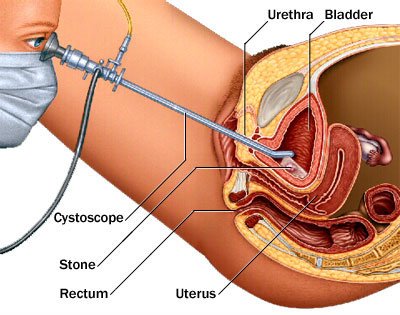Bladder stones are a common urological condition that can cause significant discomfort and disrupt daily life. At Dr. Aggarwal’s Urology Clinic in Ghaziabad, we specialize in bladder stone diagnosis and treatment utilizing cutting-edge methods customized to meet the individual needs of each patient. Here’s everything you need to know about Bladder Stone Treatment in Ghaziabad and why timely intervention is essential.
What Are Bladder Stones?
Hard mineral deposits called bladder stones develop in the bladder as a result of either high mineral levels in the urine or insufficient bladder emptying. Often, bladder stones start small but can grow larger over time if not treated. Common symptoms include frequent urination, pain during urination, lower abdominal discomfort, and blood in the urine. Left untreated, bladder stones can lead to urinary tract infections and even kidney damage, making prompt Bladder Stone Treatment in Ghaziabad crucial.
Causes and Risk Factors
Several factors can contribute to the development of bladder stones, including:
- Incomplete Bladder Emptying: When urine remains in the bladder for too long, it allows minerals to crystallize and form stones.
- Enlarged Prostate: In men, an enlarged prostate can obstruct the urinary tract, increasing the risk of bladder stones.
- Urinary Tract Infections (UTIs): Chronic UTIs can lead to inflammation, contributing to stone formation.
- Bladder Outlet Obstruction: Any obstruction that prevents proper urine flow, such as narrowing of the urethra, can cause stones.
- Foreign Bodies: In some cases, the presence of foreign materials in the bladder, like catheters, can increase the risk of stone formation.
Knowing these risk factors can help in early diagnosis and the development of an effective treatment plan.
Diagnosing Bladder Stones
The first step in Bladder Stone Treatment in Ghaziabad involves a thorough diagnosis. At Dr. Aggarwal’s Urology Clinic, our urologists use advanced diagnostic techniques to accurately assess the presence and size of bladder stones. Common diagnostic methods include:
- Urine Analysis: A urine test helps detect blood, bacteria, or crystallized minerals.
- Ultrasound: An ultrasound provides a clear image of stones in the bladder, allowing for precise treatment planning.
- X-rays: Though not all bladder stones show up on X-rays, this can be a helpful tool for detecting calcium-based stones.
- Cystoscopy: In this minimally invasive procedure, a small camera is used to examine the inside of the bladder directly.
These diagnostic tools allow us to develop a tailored approach for Bladder Stone Treatment in Ghaziabad based on the size, type, and location of the stones.
Treatment Options for Bladder Stones
Bladder stone treatment depends on the stone’s size, composition, and the severity of symptoms. At Dr. Aggarwal’s Urology Clinic, we offer a variety of treatments to provide effective relief:
- Medication: For small stones, medication may be prescribed to help dissolve the stone naturally and reduce discomfort. This approach works best for smaller stones and those made of certain materials that can break down with medication.
- Extracorporeal Shock Wave Lithotripsy (ESWL): ESWL is a non-invasive technique that uses shock waves to break larger stones into smaller fragments. These smaller pieces can then be passed out through the urine. ESWL is a popular choice for Bladder Stone Treatment in Ghaziabad as it minimizes the need for surgery and has a quick recovery time.
- Cystolitholapaxy: For larger stones, cystolitholapaxy may be recommended. This minimally invasive procedure involves inserting a small tube with a camera through the urethra to break up stones with laser energy or other tools. Cystolitholapaxy is highly effective, and most patients can resume normal activities within a few days.
- Surgical Removal: In rare cases where stones are too large to be treated through non-surgical methods, minimally invasive surgery may be required. This is typically done under anesthesia, and the recovery period is slightly longer.
Preventing Bladder Stones
Prevention is a key part of maintaining bladder health. Here are some tips to help reduce the risk of bladder stones:
- Stay Hydrated: Drinking plenty of water helps flush out minerals that could otherwise crystallize in the bladder.
- Timely Emptying of Bladder: Ensure that you fully empty your bladder each time you urinate, especially if you have a condition that affects urine flow.
- Regular Check-Ups: Routine check-ups can help identify any underlying conditions like an enlarged prostate or UTIs that could lead to bladder stones.
- Dietary Adjustments: Reducing the intake of high-mineral foods may be beneficial for individuals prone to stone formation.
Why Choose Dr. Aggarwal’s Urology Clinic?
For the Best Bladder Stone Treatment in Ghaziabad, Dr. Aggarwal’s Urology Clinic is your trusted partner. Our clinic offers:
- Experienced Urologists: Our specialists have extensive experience in diagnosing and treating bladder stones effectively.
- Advanced Technology: To guarantee precise diagnoses and efficient treatments, we make use of the newest technologies in diagnosis and therapy.
- Comprehensive Care: From diagnosis to treatment and follow-up, we provide comprehensive care to ensure optimal outcomes and patient satisfaction.
Final Thoughts
Bladder stones can cause significant discomfort and lead to more severe complications if untreated. By choosing Bladder Stone Treatment in Ghaziabad at Dr. Aggarwal’s Urology Clinic, you’re opting for advanced, patient-centered care that prioritizes your well-being and long-term health. Don’t ignore the symptoms – schedule a consultation with us today to ensure you receive the best care for a healthy, pain-free life.
To learn more about Urology visit draggarwalsurology.com or also follow us on LinkedIn


